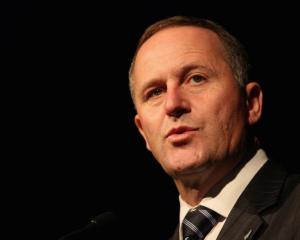Budget 2015 is likely to see a return to the theme of fiscal discipline after last year's mini spend-up, Westpac senior economist Michael Gordon says.
Finance Minister Bill English will tomorrow deliver his seventh Budget.
Mr Gordon said while last year's election-year Budget showed a willingness to dip into future surpluses to fund new spending, this year's package was likely to return to the long-running theme of fiscal responsibility.
The lack of surplus this year, and the need to delay some planned spending increases, were already conceded in December's half-year fiscal and economic update.
Since them, Mr English had indicated soft inflation would further reduce Treasury's revenue forecasts in coming years.
''A handful of new initiatives have been announced so far, and no doubt more will be trumpeted on the day. But the overall picture is likely to remain one of limited wiggle room in the fiscal accounts.''
Mr English recently indicated that lower-than-expected nominal gross domestic product growth, largely due to lower inflation, was likely to shave about $4.5 billion off the Treasury's tax revenue projections over the next four years, compared with last year's Budget.
Mr Gordon said much of the reduced tax was already included in the December update, where the revenue forecasts were lowered by more than $3 billion.
It was presumed there would be some partial offsets on the expenditure side, with lower inflation meaning lower indexation costs and a lower interest rate profile reducing funding costs.
The result would be a slightly bigger deficit for this year and a slightly smaller surplus for 2016-17, he said.
The shortfall in revenue said more about the difficult task of tax forecasting than it did about the state of the economy.
The main shortfall continued to be on GST receipts, which in the nine months to March were only up 5.7% on the same period last year compared with a forecast of 7.4%.
In contrast, individual income tax was on track at 6.5% growth and corporate tax was well ahead of forecast at 15.3%.
With such a clear signal about the fiscal projections, the interest in tomorrow's Budget presentation would be more around the economic forecasts underpinning them, Mr Gordon said.
The December update assumed inflation would settle at the 2% mid-point of the Reserve Bank's target range from March 2016.
Operational spending allowances would remain unchanged from the December update, where the allowance was revised down from $1.5 billion to $1 billion for each of the next two years and up from $1.5 billion to $2.5 billion for the 2017 Budget - an election year.
Increases in health and education would typically claim most of the $1 billion allowance, which left little room for new spending initiatives in the absence of savings elsewhere, he said.
However, the Government had already made one significant announcement, a further reduction in ACC levies, focused largely on motor vehicles, worth about $500 millon over the next two years.
The levy reductions announced in last year's Budget meant that from July this year, the average ACC vehicle levy would fall from $300 to $195 and the latest cut will take it down to $120 from next July.
Expectations
• A return to fiscal discipline after last year's election spend-up.
• Lower tax revenue and operating surplus projections over the next few years.
• ACC levy cuts means the Government can deliver tax cuts in a way that reduces rather than adds to inflation.
• Larger deficit this year and a smaller surplus next year.




